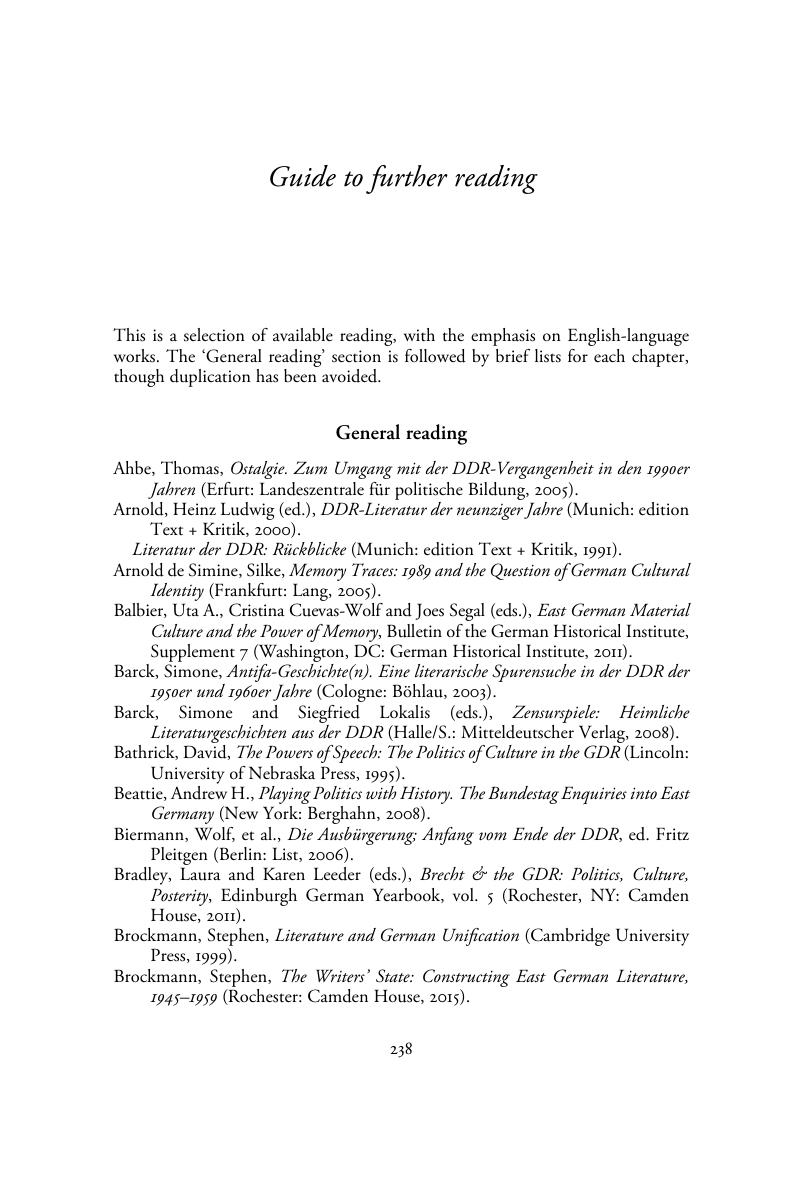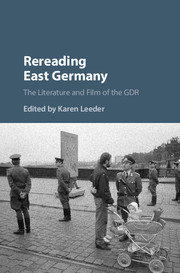Book contents
- Half title page
- Title page
- Copyright page
- Contents
- Contents
- Notes on contributors
- Book part
- Chronology
- Abbreviations, references and translations
- Introduction
- Chapter 1 The GDR and its literature
- Chapter 2 Resurrected from the ruins
- Chapter 3 DEFA’s antifascist myths and the construction of national identity in East German cinema
- Chapter 4 FromFaust IIItoGermania III
- Chapter 5 Autobiographical writing in the GDR era
- Chapter 6 Gender in GDR literature
- Chapter 7 Negotiating the politics and aesthetics of satire
- Chapter 8 The politics of dialogue
- Chapter 9 Underground literature? The unofficial culture of the GDR and its development after theWende
- Chapter 10 Tinker, tailor, writer, spy
- Chapter 11 Intellectuals and theWende
- Chapter 12 After-images – afterlives
- Bibliography
- Index
- References
Bibliography
Published online by Cambridge University Press: 18 December 2015
- Half title page
- Title page
- Copyright page
- Contents
- Contents
- Notes on contributors
- Book part
- Chronology
- Abbreviations, references and translations
- Introduction
- Chapter 1 The GDR and its literature
- Chapter 2 Resurrected from the ruins
- Chapter 3 DEFA’s antifascist myths and the construction of national identity in East German cinema
- Chapter 4 FromFaust IIItoGermania III
- Chapter 5 Autobiographical writing in the GDR era
- Chapter 6 Gender in GDR literature
- Chapter 7 Negotiating the politics and aesthetics of satire
- Chapter 8 The politics of dialogue
- Chapter 9 Underground literature? The unofficial culture of the GDR and its development after theWende
- Chapter 10 Tinker, tailor, writer, spy
- Chapter 11 Intellectuals and theWende
- Chapter 12 After-images – afterlives
- Bibliography
- Index
- References
Summary

- Type
- Chapter
- Information
- Rereading East GermanyThe Literature and Film of the GDR, pp. 238 - 248Publisher: Cambridge University PressPrint publication year: 2016



